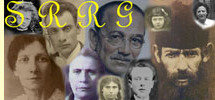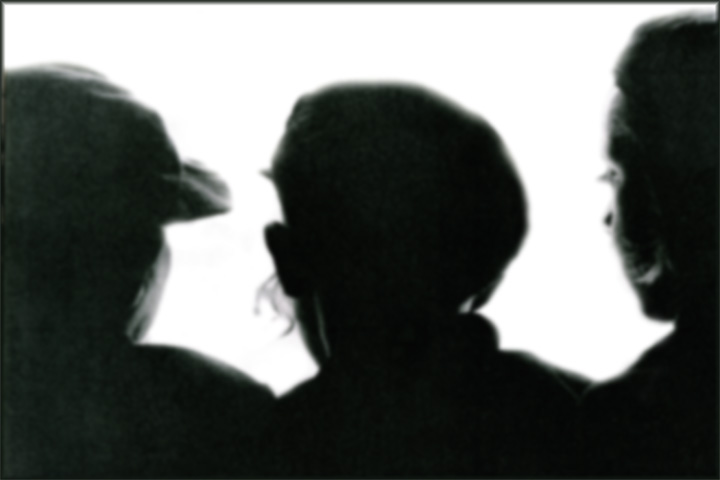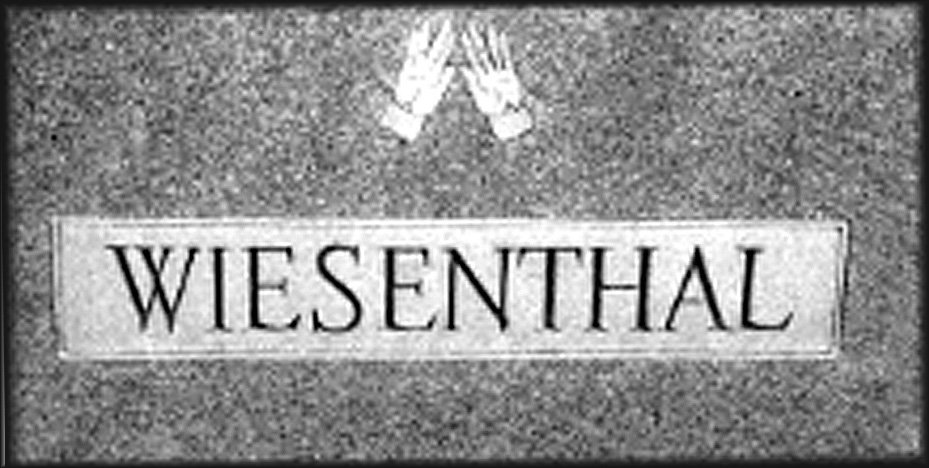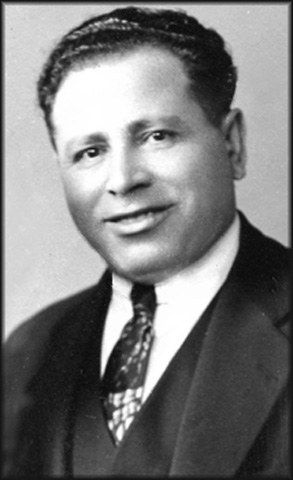

 | Stories told to me by my maternal grandfather Jacob Wiesenthal, that his father Hersh Eliyah told him about our ancestors in Skala.by Helene KenvinReturn to Skala Kehilalinks page |
Moshe Efraim (Moishe Froyim) Wiesenthal, great-grandfather of Jacob Wiesenthal, was born in Skala towards the end of the 18th century. At a time when people were buried in Skala's Jewish cemetery without caskets, Moishe Froyim's father, Rabbi Hersh Eliyah Wiesenthal, was honored as the town rabbi by having a both a casket and a tin covering over his grave.
Moishe Froyim was a Kohain, a descendant of the ancient high priests of Israel. A follower of the Vishnitzer rebbe, he was a very religious and charitable man and spent much of his time studying Torah and Talmud. His wife Chana supported the family by running an inn that was located in the gentile section of town. She used to say that it was agreed between her and her husband that whatever reward he got in the next world as a result of all of his studying, she would share with him, because he spent all of his time in shul while she worked and shared her money with him.
Moishe Froyim tried to convince the local cheder to allow all of the town's orphans to study there for free. There were an unusual number of boys without families in mid-19th century Skala, because the town was on the Zbruch River, which formed the border with Russia. Many young Jewish boys from Russia "were thrown across the river" into Skala, from Russia to Austro-Hungary, in order to avoid being kidnapped and drafted into the czar's army for 25 years, during which time they often were converted forcibly to Christianity. Moishe Froyim Wiesenthal made it his particular charity to see to it that these stranded boys received a Jewish education.
 | Many of the orphans whom Moishe Froyim helped later adopted the surname Wiesenthal, in gratitude to him. One of those orphans, my great-great-grandfather Yosef Leib Melamed, was taken into the home of Moishe Froyim and Chana and raised by them. Yosef Leib not only adopted the name Wiesenthal, but he also married Chana and Moishe Froyim's daughter Leah. Although my great-great-grandmother Leah Wiesenthal was a bat Kohain [daughter of a Kohain], because her husband Yosef Leib was not a blood-son of Moishe Froyim Wiesenthal, his and Leah's children and their descendants are not Kohanim. |
In Skala, there was a gentile woman who worked as a maid and was an alcoholic. She sold her house and got $200 for it. Not long after the sale, she had drunk all of her money at Chana's inn. The woman then complained to the town's Catholic priest, who was an anti-Semite. She said untruthfully that she had given all of her money to Chana to keep for her, but that Chana refused to return it. The priest offered to accompany the woman to Tarnopol, where she planned to sue Chana for the return of the money.
The night before the case was to be heard, Moishe Froyim went to the mikveh to ritually cleanse himself. People began to look for him, because they knew that he had to go to court in Tarnopol the next day. "Don't worry," Moishe Froyim said when they found him relaxing in the mikveh. "We won't go and the priest won't go." The next morning, the priest was found dead in the church and that was the end of the incident.
In their later years (probably in the 1870s), Moishe Froyim and Chana made aliyah to the Holy Land, because they wanted to be buried there. Judging by when babies were born who were named in their memory, Moishe Froyim died around 1880 and Chana in 1883. They are said to have been interred in a cemetery in Yaffa, but research has yet to locate their graves.
It is one thing to hear joyfully such stories about ones family recounted by a beloved grandfather. It is quite another to have the stories come to life.
In 1978, when I still was practicing law, I received a call from a man in Winnipeg, Canada. He wanted my assistance in settling the estate of a cousin of his who had died in New York without a will. To determine who should inherit the deceased's property, I would have to examine his family tree. As a criminal-constitutional litigator, this was not the sort of case I normally would handle. But could I, who at the time already had been researching my family history for two years, resist this plea for help when the potential client was named Wiesenthal and his family was from Skala?
After accepting the case, I began to question Mr. Wiesenthal about the paternal and maternal relatives of his deceased cousin. He told me that their shared paternal grandfather had been named Mattisyahu Wiesenthal and that he had lived in Skala.
"Actually," he admitted sheepishly, "he wasn't really from Skala and his name wasn't really Wiesenthal." I was instantly alert. Could it be....
"What do you mean," I asked cautiously.
|
"My grandfather Mattisyahu was born in Russia," he said. "He fled from Russia and went to Skala to avoid the draft. I don't know his real name, but he took the name Wiesenthal to honor a benefactor who helped him to get an education." "Moishe Froyim Wiesenthal," I said quietly. "Who is Moishe Froyim Wiesenthal?" he asked. "My great-great-great-grandfather," I said. "He is the one who made it possible for your grandfather Mattisyahu to study at the cheder." Hearing this story, I thought with awe about my dear Grandpa Jake and his prodigious memory, grateful that I had heard and recorded so many of his tales about Skala. I knew that, somewhere, Moishe Froyim Wiesenthal was listening to me talk to a descendant of one of his orphan boys and that on his face was the gentle smile of a righteous man. |
 Jacob Wiesenthal |